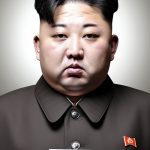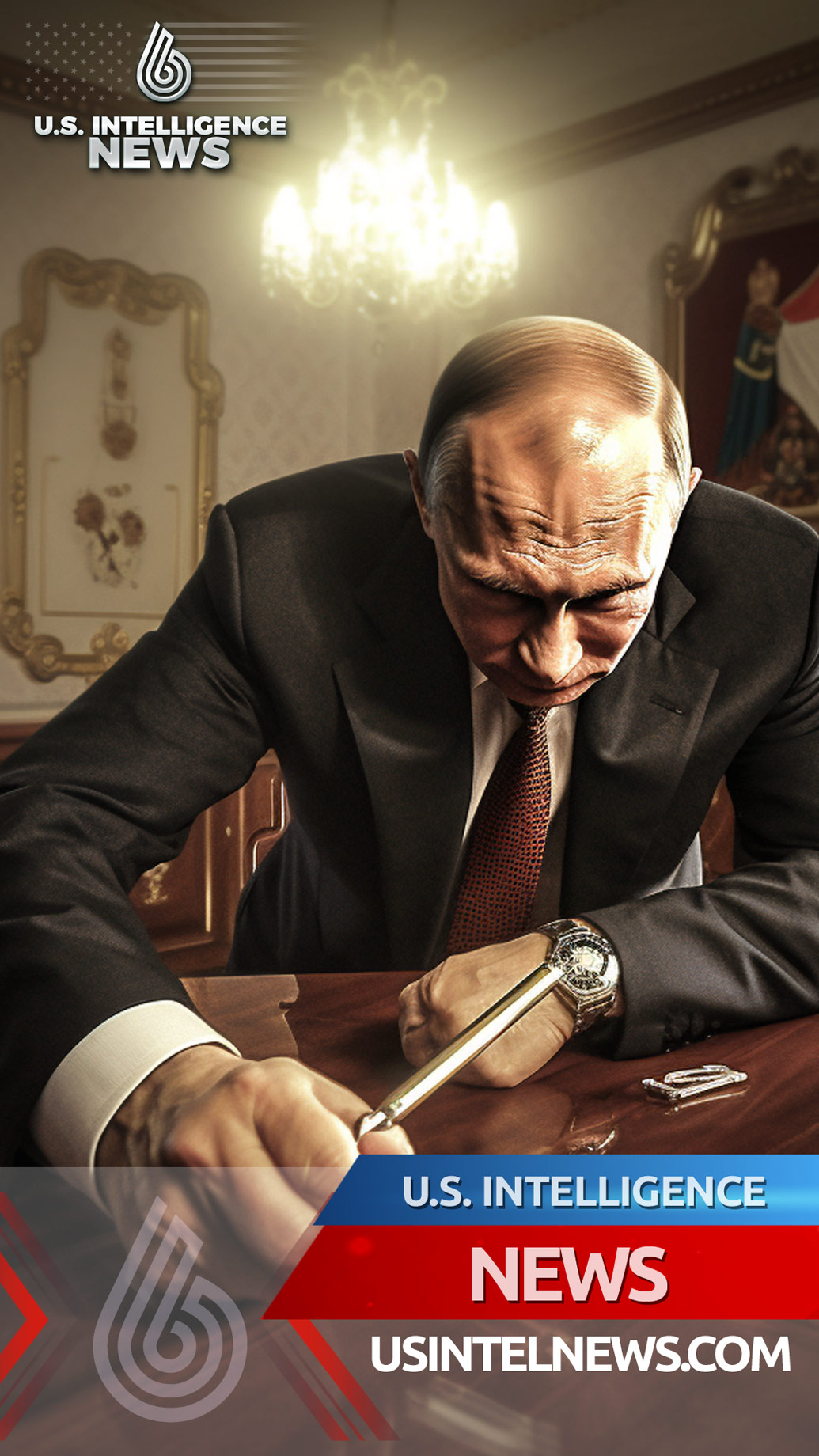
The U.S. Intelligence Community
Vedant Patel, Principal Deputy Spokesperson
Daniel Benaim, Deputy Assistant Secretary for Arabian Peninsula AffairsBureau of Near Eastern Affairs
Stacy White, Deputy Assistant Secretary for Professional and Cultural ExchangesBureau of Educational and Cultural Affairs
MR PATEL: Hey, everybody. Good afternoon. Thanks so much for joining us today for this preview call as it relates to Secretary Blinken’s upcoming travel to Doha. This call is on the record, but it will be embargoed until the conclusion of the call. Joining us today is Deputy Assistant Secretary for Near Eastern Affairs Daniel Benaim and Deputy Assistant Secretary for Educational and Cultural Affairs Stacy White. We will – as the moderator said, we will have questions for – we’ll have time for questions and answers at the end. But to start, I want to turn it over to Deputy Assistant Secretary Benaim.
MR BENAIM: Sure. Thanks very much, Vedant. So Secretary of State Tony Blinken will travel to Doha November 21st and 22nd. While he’s in Qatar, the Secretary will launch the fifth annual U.S.-Qatar Strategic Dialogue. He will meet with the Deputy Prime Minister and Foreign Minister Sheikh Mohammed bin Abdulrahman Al Thani. The launch of the Strategic Dialogue is an important opportunity to strengthen and coordinate our strong ties with Qatar across a range of fields, including security, energy, global health, human rights, and more.
Secretary Blinken will also be cheering on the U.S. Men’s National Team and attending the team’s first match against Wales. Qatar is a steadfast and important partner to the United States, and U.S.-Qatar ties continue to grow. This year, we celebrated the 50th anniversary of diplomatic relations between our countries. Together we’ve made important progress on a range of issues, including facilitating the travel of at-risk Afghans to the United States for new beginnings, strengthening regional security, and expanding commercial investment ties between our countries. President Biden designated Qatar a major non-NATO ally this year in recognition of our strategic partnership, a move that he heralded as long overdue. The tournament has provided an opportunity to further improve our cooperation on security, cultural exchange, labor practices, anti-trafficking, accessibility, and many other issues, and that work will continue.
We’re also pleased by the historic step of opening direct flights between Tel Aviv and Doha for the duration of the World Cup for both Palestinian and Israeli fans, and commend the efforts that went into arriving at this arrangement. The trip is also another chance to make clear, as we often have, that the United States is in this region to stay, that we will remain an active engaged partner in this region, and that we’re invested in building a positive future in the Gulf, including with our partners such as Qatar.
I now would like to turn it over to my colleague in ECA, Deputy Assistant Secretary Stacy White.
MS WHITE: Thank you, Dan. I’m so pleased to be able to join my colleagues Vedant Patel and Deputy Assistant Secretary Benaim in this briefing to discuss the Secretary’s upcoming trip to Qatar for the 2022 FIFA Men’s World Cup.
But while my expert colleagues discussed the relationship between the United States and Qatar, I’d like to share a few words on how the United States uses sports as a driver of diplomacy to help achieve our broader foreign policy goals. Sports diplomacy is a key component of the United States public diplomacy efforts. It supports U.S. foreign policy by addressing policy issues and engaging essential communities, including youth, women, girls, and persons with disabilities, in order to achieve results. In a world where many things can divide people, sports transcends borders and have the power to bring individuals together.
So as part of the department’s people-to-people diplomacy efforts, the Bureau of Educational and Cultural Affairs implements exchanges and programs to reach important underserved communities and leverage sports and American athletes for good. In fact, more than 81 members of the U.S. men’s and women’s national teams have served as sports envoys. These are generous and committed elite American athletes who travel overseas to engage youths. The lineup includes current U.S. Soccer President Cindy Cone, Alex Morgan, Julie Foudy, Ashlyn Harris, Tony Sena, and Cobi Jones.
In addition to American athletes traveling overseas, the department also implements a Sports Visitor Program which brings young athletes, coaches, and administrators to the United States to engage with their peers, both on the field and in the community. And on Monday in Doha, we bring sports diplomacy to the forefront as part of Secretary Blinken’s visit to the World Cup. He will be joined at a youth soccer clinic by Qatari Government officials, the foreign secretary of Mexico, and the minister for international development of Canada, since, as you know, our three countries will be hosting the 2026 World Cup in North America.
This will be a great international sports diplomacy moment, as the Secretary will participate in the program with youth from the United States, Qatar, Mexico, and Canada and with a nongovernmental partner, Generation Amazing. In addition, U.S. Soccer President Cindy Cone, who, as I mentioned, is a State Department sports envoy, will also be participating and accompanying the Secretary at that clinic. Cone is also a celebrated former U.S. Women’s National Team player and World Cup and Olympic Games champion.
MR PATEL: Thanks so much Stacy. We now have some time to take some questions. Operator, if you could please repeat instructions for our participants on how to ask a question.
OPERATOR: Absolutely. Ladies and gentlemen, if you wish to ask a question, please press 1 and then 0 on your telephone keypad. You may withdraw your question at any time by repeating the 1, 0 command. If you’re using a speaker phone, please pick up the handset before pressing the numbers. Once again, if you have a question, you may press 1 and then 0 at this time. And one moment for the first question.
MR PATEL: Thanks. Let’s first go to the line of Abigail Williams with NBC News.
OPERATOR: Just a moment, please. Ms. Williams, your line is now open.
QUESTION: Thanks for doing the call. I wonder: Does the U.S. have any concerns about Qatar’s labor practices and the death of what some human right’s groups say is thousands of people who built Qatar’s stadium and the surrounding infrastructure to support their hosting the World Cup? And if so, are you concerned that the Secretary’s attendance at the game might send the wrong signal to the Qatari Government?
MR BENAIM: Thanks very much. Dan Benaim here. As President Biden said in his National Security Strategy, human rights is one of the five key principles driving U.S. policy in this region. The United States has been discussing human rights with Qatar and with other partners in this region at all levels, and we will continue to do so long after the World Cup concludes. We support Qatar’s efforts to fully implement the reforms it has undertaken and to continue the work that remains. And that is a conversation that we have been having with the Qatari Government and we’ll continue to have with the Qatari Government.
MR PATEL: Thanks. Let’s next go to the line of Jennifer Hansler with CNN.
QUESTION: Thanks for doing the call. Just to follow up on Abigail’s question, do you intend to raise specific concerns around the World Cup with the Qatari Government, given that there are these reports around their labor practices? And then separately, are there any plans to meet with any Taliban officials while you’re in Doha? Thank you.
MR BENAIM: Labor issues, as I said, have been a regular topic in our ongoing conversations with the Qatari Government in the run-up to the cup and will remain so, including a visit by our Under Secretary of State Uzra Zeya out to Qatar.
And on the second question, I don’t have anything for you.
MR PATEL: Hey, Jennifer, we do not have any plans.
Next let’s go to the line of Vivian Salama with The Wall Street Journal.
QUESTION: Hi, everyone. Thanks so much for doing this. I have two questions; one is actually just expanding on what Jenny just asked. There’s going to be dignitaries from all over the world attending the games, so I was wondering if there are any efforts for pull-asides that you guys already have in the works or meetings with non-Qatari, non-Taliban officials, since you just referenced that.
And my second question, really quick, is just on the ongoing Qatar-Saudi dispute. And I was wondering, in your bilats, how much is that going to come up? Are you all working to try to either mediate or find some sort of a solution to the ongoing kind of spat between Gulf states? Thanks.
MR PATEL: Vivian, I can offer real quick on the Secretary’s schedule. We of course, as you know, on – as precedent with previous trips, will have more specifics of his day-to-day to offer as we get closer, but don’t have any schedules or additional bilateral engagements to preview at this time beyond that.
MR BENAIM: And Vivian – this is Dan Benaim – on the second part of your – on the first part of your question – well, anyway, on the Saudi-Qatari part, since the AlUla Declaration in early 2021, we’ve seen ties between these countries warm and a wide range of bilateral cooperation take root and grow. And what we’re looking at now is ways to advance that cooperation and maintain regional cooperation and pursue regional integration. So we certainly still talk about these topics, but we’re pleased by the progress that we’ve seen to date.
MR PATEL: Thanks. Let’s next go to the line of Michael Lavers with the Washington Blade.
QUESTION: Thank you so much for the call. Kind of a similar question to what other folks have asked. Does the Secretary plan to specifically raise Qatar’s LGBTQI rights record while in country?
MR BENAIM: So I’m not going to get ahead of Secretary Blinken on his specific plans. But this is certainly an issue that we have raised with the Qatari Government and discussed in depth and will continue to do so.
MR PATEL: Thanks so much. Let’s go to the line of Matt Lee with the AP.
QUESTION: Hi, there. Can you all hear me? Hello?
MR PATEL: Yes. Go ahead.
QUESTION: Yeah. Hey, I just want to follow up on Vivian’s question. Maybe I completely misheard the opening, but Vivian asked you about meetings that he might have with other foreign officials. And in the opening, I thought that maybe I was wrong that you said he was going to be doing an event with the Mexicans and the Canadians. Do those not count? Or did I mishear? Sorry.
MR PATEL: Nope. That is correct, as our —
QUESTION: Okay. Well, then can we please not – then when the question is, is he going to have meeting with other non-Qatari, non-Taliban, non-whoever people, don’t say we don’t know yet when you’ve just announced it, please. Thank you. That’s all.
MR PATEL: All right. I think we have time for just a couple more questions. Let’s go to the line of Humeyra Pamuk with Reuters.
QUESTION: Hi. Thanks for doing this. Just to follow up from my colleagues, you’ve been asked about whether or not you will raise human rights issues, LGBTQI issues, labor issues, and your answers to all of those questions were: we’re regularly raising these issues. Can you then tell us what is the feedback you’re getting from the Qataris? And I think you made the reference to some of the reforms in terms of human rights issues that they are undertaking. Can you explain what those are and whether you are getting any specific and concrete assurances about improving their human rights track record, improving their rights for LGBTQI individuals, and for labor? Thanks.
MR BENAIM: Can you repeat the first one of your – part of your question was what assurances have we gotten from them?
QUESTION: Yeah. I mean, if you’re regularly, consistently raising these issues, what are they telling you? Are they giving you any assurances about improving these track records?
MR BENAIM: Yes, well, I think on labor in particular they’ve undertaken a program of labor reforms in several years, I think driven in large part by the cup, ranging from work conditions to minimum wage to facilitating job changes and other steps. And we’ve just had an ongoing, in-depth dialogue on every part of that and on the full implementation of those reforms, which are ongoing and which we expect will be ongoing for some time to come. And we continue that partnership.
I think there was a public assurance from the emir to fans coming to Qatar that Qatar is and the World Cup is open to all and welcome for all. And beyond that, on the Qataris’ commitments, I would refer you to the Qatari Government.
QUESTION: Sorry, can I just follow up on that, actually? Is my line still open?
MR PATEL: Go ahead.
QUESTION: I’m just looking at a story from earlier in November. A Qatar World Cup ambassador basically gives an interview to a German television broadcaster, and he said homosexuality was damaging the mind. So it feels like that contradicts with what Qatari emir is saying in terms of, like, everyone’s welcome because that does come across as rather unwelcoming for the LGBQI community. I mean, would you want to comment on that? Thanks.
MR BENAIM: Well, we go back to the emir’s statement that the World Cup is welcome to all. The issue of LGBTQ rights is one where the U.S. policy position is well known, and as I said, it’s one of the many issues that we’ve discussed with the Qatari Government and will continue to discuss. The emir is the senior-most official in the country and made clear that all are welcome at the World Cup.
MR PATEL: Thanks so much. I think we’ve got time for one last question. So let’s go to the line of Leon Bruneau with AFP.
QUESTION: Yeah, hello. Can you hear me?
MR PATEL: Yes, sir. Go ahead.
QUESTION: Okay, yeah, thanks. Thanks for having this. Maybe more of a trivial question, although it’s fairly interesting. I don’t know if the Secretary drinks beer, but he’s not going to be allowed to, if he does, in Qatar during the World Cup, at least around the stadiums, which was a pretty big blow to Budweiser also and which is a major sponsor. Do you think that’s a good idea, that supporters would not be allowed to drink beer as they always have in the football games at the World Cup?
Not taking the question? (Laughter.)
MR BENAIM: Well, as for the specific regulations on where a fan can and cannot drink beer, I would refer you to the Qatari Government. I think our bigger focus is just making sure, as part of our larger focus on the safety and well-being of American citizens, that Americans are well aware of the regulations and in a position to follow host country regulations as part of their travel to the cup and to make sure that they understand what those regulations are. We would encourage people to go to travel.state.gov and to the World Cup page on our U.S. Embassy Qatar website so that should we see additional changes and know exactly where to look to make sure that they are aware of circumstances on the ground and can act accordingly.
MR PATEL: Thanks so much for joining today’s preview call, everybody. Really appreciate everyone taking the time. Again, this call is on the record but embargoed until the call’s conclusion, which will be momentarily. And looking forward to talking to you all again very soon.


 Are North Korean Soldiers a Burden or Asset in Russia’s Offensive?
Are North Korean Soldiers a Burden or Asset in Russia’s Offensive?  As Bitcoin Faces a Market Meltdown, Ethicoin Rises as the Ethical Alternative for a Sustainable Crypto Future!
As Bitcoin Faces a Market Meltdown, Ethicoin Rises as the Ethical Alternative for a Sustainable Crypto Future!  Breaking News: Armenia Facilitates Russia’s Gold Sanctions Evasion in Billion-Dollar Trade Scheme
Breaking News: Armenia Facilitates Russia’s Gold Sanctions Evasion in Billion-Dollar Trade Scheme  Crisis Within the Kremlin: The Fall of Russia’s Gas Giant Gazprom
Crisis Within the Kremlin: The Fall of Russia’s Gas Giant Gazprom 


